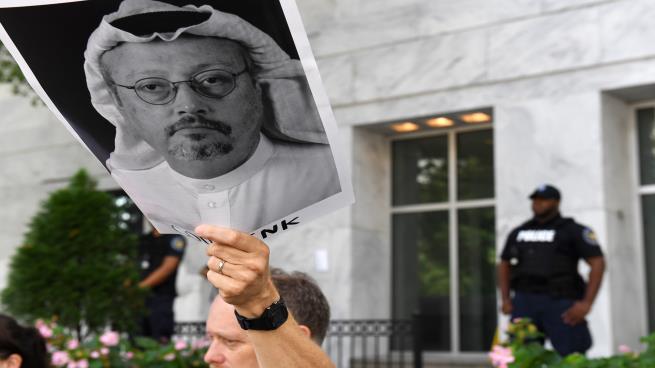
On Monday, Saudi authorities said that eight people had been sentenced to prison terms between seven and 20 years for the killing of journalist and Post columnist Jamal Khashoggi in October 2018. But international observers immediately slammed the verdicts as a parody of justice.
Agnes Callamard, the United Nations’ special rapporteur for extrajudicial killings who led an independent investigation into the murder, said the sentences “carry no legal or moral legitimacy,” having come “at the end of a process which was neither fair, nor just, nor transparent.” Callamard’s 2019 report directly implicated Saudi Crown Prince Mohammed bin Salman in the murder; her findings match the CIA’s formal assessment, delivered in November 2018.
But Saudi authorities consider the case closed. The sentences are supposed to be the “final” rulings. As we approach the second anniversary of Jamal’s murder, MBS, as the crown prince is known, is eager to put the episode behind him. It’s not very difficult to see why — there seems to be a growing anxiety among Arab dictators that President Trump may not be around to cover up for them for four more years, and Mohammed bin Salman knows that come January, he may face a much more hostile White House.
It’s clear that MBS thought that he’d manage to make Khashoggi’s disappearance a mystery forever. The assassins went to great lengths to cover up their tracks, from bringing along a forensic expert and a body double to sending an experienced cleanup team afterward. But thanks to Turkish intelligence, and the sheer brazen recklessness of the crime itself, what we got was a proven crime with incontrovertible evidence directly implicating MBS’s most loyal lieutenants and, therefore, the crown prince himself.
One would think that after such a fiasco, MBS would have understood the severity of his own position. But for months he proceeded as though the international outrage will only last a few more days. There are even reports that his attempts to kidnap or kill dissidents continued after Khashoggi was murdered, such as the case of the former top Saudi intelligence officer Saad Aljabri in Canada, and that of Abdulrahman Almutairi in Los Angeles. In 2019, Norwegian intelligence officers warned me that I, too, am a target.
It took months before MBS realized that the ghost of Khashoggi will not stop chasing him. Once that dawned on him, he had two paths to choose from. One was the path of complete transparency, signaling a real change of behavior. The other was the path of maximum resistance.
Choosing complete transparency would have meant purging the entire chain of command involved in the murder. This would have been a tall order given that the command chain ends at his own feet. He could have at least tried to take it all the way to the two lieutenants who ran the operation, his right-hand man, Saud al-Qahtani, and Ahmed al-Assiri, both of whom he exonerated in December 2019. Perhaps, had MBS done so, that would have been sufficiently convincing for the world to rehabilitate him back to his early 2018 “liberal reformer” image.
The path of maximum resistance, on the other hand, meant trading off his “reformer” image for that of a Putin of Arabia — an untouchable, unaccountable strongman. It is clear that MBS is seeking to build a police state, one in which dissent is impossible. One of the cardinal rules of police states is that those doing the dictator’s bidding must be guaranteed absolute impunity. They cannot be accused of criminal misconduct or face any punishment for carrying out orders. It’s a very dangerous thing for a dictator to go after his own enforcers. Doing that would be dangerously destabilizing for his power, especially when his police state is still under construction and hasn’t been perfected yet.
MBS had these two paths to choose from, and he chose the worse of both: A show trial that convinces nobody and sacrifices some of his most loyal men. The world still sees him as a criminal, but his enforcers know they can be thrown under the bus.
To me, as a dissident directly targeted by MBS, this outcome changes nothing — it only indicates that our adversary is incapable of learning any lessons. He will continue to find loyal henchmen to do his bidding and dispose of them when they’re no longer useful.
Saudi Arabia will continue marching down the path of bloody autocracy, and the work of dissidents will continue to be extremely risky.
This opinion was originally published on the Washington Post